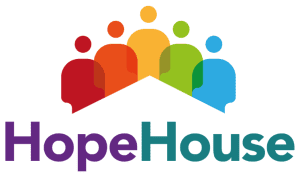Monday1 December is #WorldAIDSDay – a global campaign by the National AIDS Trust which has been recognised every year since 1988.
Every 1st December communities come together to support and secure the rights of those living with HIV, remember those who have lost their lives to AIDS-related illness, and continue the fight to end the stigma surrounding HIV.
 Fighting stigma with U=U
Fighting stigma with U=U
One of the most powerful tools in fighting stigma is spreading awareness of U=U: Undetectable = Untransmittable. When someone living with HIV is on effective treatment and maintains an undetectable viral load, they cannot pass the virus to their sexual partners. This knowledge breaks down stigma, encourages testing and treatment, and empowers those living with HIV.
Despite its monumental significance, many remain aware of U=U and misinformation continues to fuel stigma and discrimination. By commemorating World AIDS Day, we amplify messages like U=U, helping to shift narratives from fear and misinformation to understanding and support. U=U is more than just a medical breakthrough; it is a statement of dignity and empowerment for those living with HIV. It underscores that a positive status does not define a person’s worth, relationships, or future. Acknowledging and spreading this truth during World AIDS Day is a vital step toward combating the stigma that many people with HIV still face.
 Hope House Sexual Health Service
Hope House Sexual Health Service
Hope House Sexual Health Service is getting behind this year’s campaign and using this as an opportunity to promote the importance of prevention and early detection, to help prevent new cases of HIV and spread of the virus.
Dr Ayo-ola OkuNwobi-Smith, Consultant Genitourinary Medicine and HIV at Hope House, said: “World AIDS Day is a time to remember those who have lost their lives to the disease, promote awareness around HIV and stand with those living with the condition.
“I think it is also an opportunity to celebrate how far we have come over the last 30 years in raising awareness and understanding of the condition, and reducing stigma around HIV – but we can do even better. We aim to achieve zero tolerance to stigma against people living with HIV.
“Here at Hope House we offer HIV testing throughout the year as part of our standard sexual infection screening. If you were to test positive for HIV, we would not disclose this to anybody – not your employer, not your GP. This is your information. However, should you receive a positive result, you will be able to access free treatment and support.”
“The HIV treatments currently available can’t get rid of HIV completely, but work by reducing the amount of HIV in the body, so the immune system can improve. Once the HIV is undetectable in the blood it is untransmissible. This is known as U=U – i.e., ‘Undetectable = Untransmissible’.
“HIV is now classified as a chronic illness, not a fatal one. The recent and continuing improvements in anti-retroviral treatment (HIV medication) therapies mean that people living with HIV can experience a near-to-normal life expectancy, undetectable levels of virus, and enjoy a full life.”
On the subject of the stigma surrounding HIV, she continued: “We are all responsible for destigmatising HIV in our communities, places of work, schools, universities, places of worship – in fact, anywhere we meet other people. The Government has pledged to achieve zero stigma against people living with HIV by the year 2030.
“Let’s all do our part in our communities, join hands and stamp out HIV stigma before 2030. Happy World AIDS Day!”
BBC Radio Gloucestershire shines spotlight on World AIDS Day
BBC Radio Gloucestershire Breakfast Show host Jon Smith spoke with Dr Ayo-ola OkuNwobi-Smith and Mark, a patient with the HIV service at Hope House. In his interview Mark talked about how his life has been since receiving his diagnosis 10 years ago, and both he and Dr Smith discussed tackling the stigma surrounding HIV and how, with the right treatment, people with HIV can live a happy and healthy life. Listen again at:https://www.bbc.co.uk/sounds/brand/p043zrlz (from 2:07:14).
Podcast – Mark’s HIV journey
Dr Ayo-ola OkuNwobi-Smith recently recorded this interview with Mark, a patient with the HIV service at Hope House, who was diagnosed with HIV in 2015. In this podcast, Mark talks with Dr Smith about how his life has been since receiving his diagnosis 10 years ago, the stigma surrounding HIV and how, with the right treatment, he is managing to live a happy and healthy life with the virus.
The Eddystone Trust
The HIV Service works closely with The Eddystone Trust, which offers support and advice to people living with HIV.
The charity has launched its first annual World AIDS Day survey, exploring community attitudes and behaviours around HIV testing. The insights gathered will help shape its future outreach, services, and campaigns. Please help The Eddystone Trust by taking the survey (it takes around two minutes).
Home testing kits
People can also test at home using HIV postal and self-test kits. To find out more, and for further information, visit the Hope House website>
For further facts about HIV visit the National AIDS Trust website.

 Fighting stigma with U=U
Fighting stigma with U=U Hope House Sexual Health Service
Hope House Sexual Health Service


